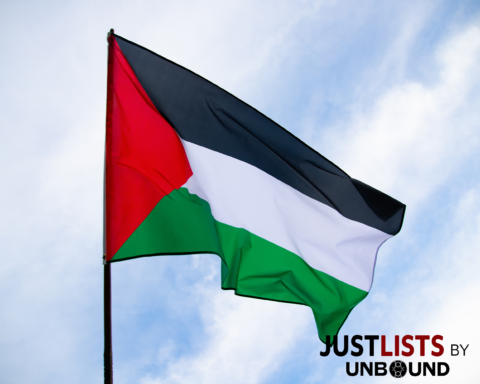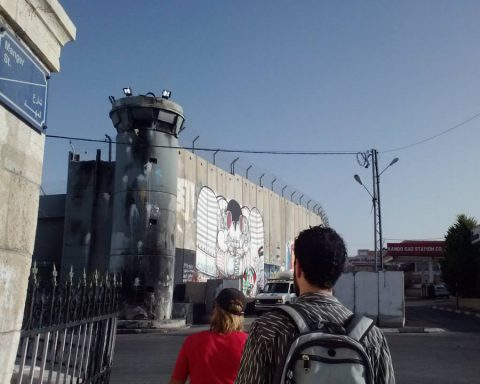For 31 consecutive weeks, Israelis have taken to the streets, mostly in Tel Aviv, to protest the decision by the current right-wing government of Israel to initiate an overhaul of its judicial system.
Israel’s “Unreasonableness Law” is a measure that removes the courts’ power to overturn decisions made by Israel’s Cabinet or Knesset, or its ministers, that they find to be “extremely unreasonable”. The law strips Israel’s Supreme Court of the power to overturn government actions and appointments it deems “unreasonable”.
The law is part of a wider effort led by the current Prime Minister Benjamin Netanyahu and his right-wing allies to overhaul the judicial system of Israel, and prevent the Supreme Court from vetoing government decisions on the grounds that they are “unreasonable”.
The new legislation is an amendment that removes one, but not all, of the tools the Supreme Court has for quashing government and ministers’ decisions. Up until now, if the court deemed an executive decision “unreasonable”, it could void it. As the saying goes, the devil is in the details.
So, Israelis have taken to the streets, and are protesting what they see is an attack on their democracy.
It is rather strange, but not without some logic, that Israel thinks of itself as a democracy, given the neighborhood in the Middle East where it exists, and surrounded by countries that adhere less to democratic values and more to powerful families that have long ruled over their people – more often than not – with an iron fist.
If Israel was founded as a Jewish State for the Jewish People, then what about the twenty percent of its own population, who are non-Jewish, that reside within its borders and are citizens of the state? What of the Palestinian population of the West Bank and Gaza that live a semi-autonomous existence? How do they experience Israel’s “democracy?
Already, the Presbyterian Church (USA), and most recently the UCC/Disciples of Christ, have labeled Israel’s policies and practices in the West Bank as that of “apartheid”, a term that was already being used by B’tselem, the Israeli Information Center for Human Rights in the Occupied Territories, as well as the International Federation for Human Rights (FIDH) Human Rights Watch, and Amnesty International.
In a letter to the broader church, following the actions taken by the 225h General Assembly, the Stated Clerk of the Presbyterian Church (U.S.A.) said that “we are convinced that there is a fundamental difference between antisemitism and the right to critique the policies of Israel deemed illegal under international law.” (See Presbyterian Church (U.S.A.) – Stated Clerk shares letter to church on GA decision regarding Israel-Palestine (pcusa.org)
So, what are the future implications of all of this, if Israel succeeds in overturning its own judicial system?
For Israelis
It means that many in the armed forces, including pilots, have stated they will refuse to serve or to be called up for military duty, putting at risk Israel’s combat readiness in the Middle East. Doctors have warned that they will not show up for work, if the government scorns the High Court of Justice ruling against the legislative push.
Israel’s economy is on shaky ground, and the Israeli shekel rises and falls against the U.S. dollar and other foreign currencies, depending on the unfolding, political climate related to the proposed judicial overhaul. The Bank of Israel has already cited an increased risk to the economy due to judicial overhaul and the uncertainty that is has created.
Some Israelis are seriously considering relocating to another country. At least 56,000 Israelis have obtained Portuguese passports, and are considering leaving Israel in search of a better life abroad.
For many Israelis, it means that the fight is not over with yet. They have pledged to continue to protest in the streets every week. In late July, and in the oppressive heat of summer, tens of thousands of Israelis marched from Tel Aviv to Jerusalem, and just ahead of the vote on the first major piece of legislation that would alter the current judiciary.
For Palestinians
For the Palestinians, it means business as usual. Or worse. Israeli settler violence against Palestinians in the Occupied Territories is at an all-time high. Armed Israeli settlers, often protected by the Israeli army, have attacked Palestinians, their lands, their sheep herds and even their homes and towns. The Israeli incursion into Jenin in early July, as well as the settlers rampage against the Palestinian communities of both Hawara, south of Nablus, and Turmus Ayya, north of Ramallah, are but two such examples.
In the south Hebron hills, vulnerable Palestinian communities of mostly sheep herders have been harassed by Israeli settlers, including the introduction of “Israeli settler herders” – Israelis who are trucked in with herds of sheep or goats, and then given priority over scarce water resources and grazing lands. In the area of Masafer Yatta, over 1,000 Palestinians are facing expulsion.
Attacks against Palestinian Christians, and their churches, their institutions, and even their cemeteries are on the uptick, with little or no accountability nor consequences for the perpetrators. Spitting at the cross during clergy processions by Orthodox Jews in the Old City of Jerusalem, and even at the clergy themselves, have become commonplace. Jerusalem, the city of three faith communities, is sadly becoming a city of religious intolerance.
As the current government of Israel moves farther and farther to the right, and the National Security Minister calls for more Israelis to seek gun licenses, the future does not bode well for Palestinians.
Israelis have not associated or equated what is currently happening in Israel proper with what has been happening to the Palestinians, who have lived under a brutal, Israeli military occupation for the past 56 years. At least not yet.
For the world
It will be harder for the United States, and Western Democracies to continue to stand up and defend Israel, the more it moves farther to the right, and exposes its own racism, bordering on fascism, on the world stage.
U.S. President Joe Biden has urged Israeli Prime Minister Netanyahu to halt the plan of a judicial overhaul, and to seek a broader consensus.
Already, both Democrats as well as some Republicans in the U.S are calling for ending military aid to Israel, a move that would have been unheard of in the U.S. Congress before now. Yet, considering the current circumstances unfolding, it is becoming increasingly popular.
As the window on a two-state solution has now all but closed, and Israel seems intent on enacting policies and legislation that embrace Jewish Supremacy over all of the land between the Jordan River and the Mediterranean Sea, it remains to be seen how those countries that worked so hard at drafting and implementing the Oslo Accords of the mid 1990’s, and a mutual, historic reconciliation between the two parties – Israelis and Palestinians – will simply sit idly by, and watch the prospects for Middle East Peace simply vanish, once and for all.
In a somewhat ominous warning, one of Israel’s journalists, Anita Shapira, writing in the daily Ha’aretz (The Land) newspaper, pointed out that, the two, ancient kingdoms of Israel both lasted only about 75 years. The first was defeated by the Assyrians, the second by the Babylonians.
As the modern nation-state of Israel just celebrated its 75-year existence in May, the current circumstances unfolding in the country, as well as in the occupied territories, serve as worrying trends for the future.
And perhaps for the future and longevity of Israel.
Israeli Prime Minister Netanyahu, who is currently on trial for bribery and corruption charges, seems hell-bent on retaining power, and evading the Israeli justice system, at all costs. If he feels he is “going down,” perhaps he intends to take the entire country with him.
So, the weekly protests will no doubt continue in the streets of Tel Aviv, Jerusalem and elsewhere. That said, may the power of the people prove to be stronger than the people in power. For all our sakes!
Doug Dicks serve as the Presbyterian Church (U.S.A.)’s Regional Liaison to Israel, Palestine and Jordan. He has lived and worked in the Middle East for 24 years on behalf of World Mission of the Presbyterian Church USA. In addition, Doug helps visitors, pilgrims and tourists to the Holy Land to connect with the people of the land, especially those engaged in peace and justice issues. Additionally, Doug serves as an Ecumenical Associate with St. Andrew’s Scots Memorial Church in Jerusalem.






Unbound Social